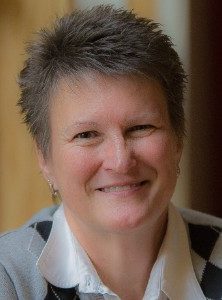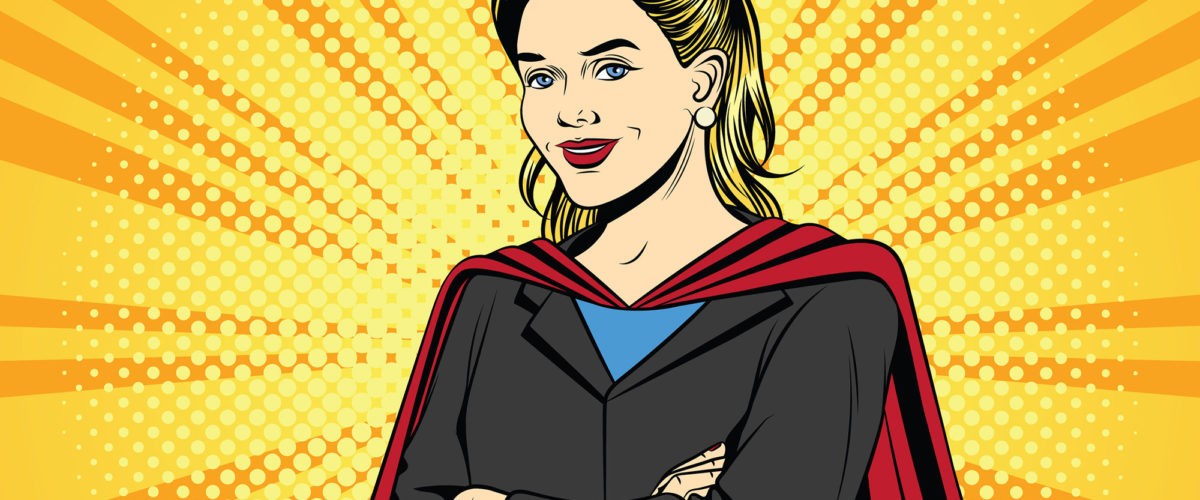Nearly 60 years have passed since Watts Street Baptist Church in Durham, N.C., ordained Addie Davis to ministry. Yet somehow, Southern Baptists are still fighting about women in ministry.
Saddleback Church in California recently set off a new round of controversy by ordaining three women on its staff. Southern Baptist Theological Seminary President Al Mohler, not surprisingly, thinks the ordination of women has led to the “feminization” of “liberal Protestantism.” He writes, “Put bluntly, there are just not that many males left. Actually, there are not many people left in those churches. Liberal theology is the kiss of death for any church or denomination. Little remains but social justice activism and deferred maintenance.”

Susan Shaw
Fortunately, white men like those running the Southern Baptist Convention don’t have the last word. In fact, for many years now, Baptist women have been narrating their own stories, and these counter-voices are ones you should hear because they offer other ways of looking at things, deeper, more complex and nuanced voices of diverse women who have a whole lot to say. Indeed, they’ve a story to tell.
Girls’ Auxiliary
Many Baptist women likely remember being a GA. For those of us old enough, GA stood for Girls’ Auxiliary. For those who are younger, it‘s Girls in Action, a program of Woman’s Missionary Union. (Just a note for WMU staffers: I know “GA” is already plural, but you and I also know that many of us still call ourselves “GAs,” and so that’s the term I’m going to use.)
In GAs, we learned about a bigger world as we heard the stories of missionaries at home and abroad. We made little toiletry kits to send to places far-away like Zimbabwe and Thailand. We prayed for missionaries on their birthdays. We practiced public speaking skills, and we listened intently when leaders told us, “You can be anything God calls you to be.”
For those of us of a certain age, we started GAs as “maidens” and worked our way through “Forward Steps” up to “ladies-in-waiting,” “princesses,” “queens,” and even “queens-in-service.” We wore white capes and crowns and carried scepters in a coronation service, and, as my friend Karen Massey, now an associate dean at McAfee School of Theology, who earned the highest level of “Service Aide” and appeared on the cover of Accent, the WMU magazine for teens, says, it was all a little like a Baptist beauty pageant.
“Little, however, did those GA leaders suspect that for many of us that call to ‘arise, shine’ would be to ordained ministry, the pastorate or the professoriate.”
Nonetheless, GAs was the place where we learned our responsibility to answer God’s call. Little, however, did those GA leaders suspect that for many of us that call to “arise, shine” would be to ordained ministry, the pastorate or the professoriate.
Claiming a voice
One of the early metaphors second wave feminists used to describe women’s experience of claiming agency was voice. In other words, in a patriarchal culture that has long silenced women, for women, a primary act of asserting self is to speak up.
As Baptist women began to speak up in the 1970s and ’80s, fundamentalists within the SBC tried to shut them up. The SBC passed a resolution calling for women’s exclusion from the pastorate; seminaries got rid of women professors; and local Baptist associations kicked out churches that called women as their pastors.
Nevertheless, these women persisted. Many of them earned Ph.D.s. They found positions in Cooperative Baptist Fellowship or Alliance of Baptist churches, agencies or seminaries; some made their way in other denominations; a few stayed and continued the struggle in colleges with Southern Baptist ties; some, like me, found a place in the secular sphere. We were joined by new generations of Baptist women who grew up after the Baptist battles of the ’80s but still saw the ways patriarchy, white supremacy and heteronormativity (the ways society is shaped to reinforce the assumption that all people are heterosexual) are intertwined with the church.
Many of us started to use our voices to reshape the narratives of the Baptist past, biblical interpretation and theology. Some of us even started to write about Baptist women.
“Many of us started to use our voices to reshape the narratives of the Baptist past, biblical interpretation and theology.”
GAs gone bad
In 2011, Karen Seat, a religious studies professor at the University of Arizona and a missionary kid, got Eileen Campbell-Reed (Central Baptist Seminary), Betsy Flowers (Baylor University), and me together to present a session on Southern Baptist engagement with feminism at the January 2012 conference of the American Society of Church History. We had so much fun, we decided to keep working together.
We expanded and invited a small group of other women researching and writing about Baptists to join us for a meeting in Oregon.
We named ourselves GAs Gone Bad, a phrase first coined by Molly Marshall and Nancy Sehested. GAs Gone Bad are those Baptist women who claim their calling in the face of resistance. They preach, teach, write and work to transform the world.
GAs Gone Bad did more presentations about Baptists and feminism at the National Women’s Studies Association and the National Association of Baptist Professors of Religion meetings and various conferences. Courtney Pace (formerly of Memphis Theological Seminary) joined us at NABPR for a reading of the play Baptist Preacher Girl by Kryn Freehling-Burton, based on interviews I did with Baptist women in ministry for my book, God Speaks to Us, Too: Southern Baptist Women on Church Home and Society. Lisa Thompson (Vanderbilt University Divinity School) then joined us for a meeting in rainy Arizona to plan a book that eventually became A Marginal Majority: Women, Gender, and a Reimagining of Southern Baptists, edited by Karen Seat and Betsy Flowers.
Many GAs Gone Bad contributed to the volume, which explores the SBC’s complicated and checkered past and present with women. Taken together, the essays provide an illuminating context for current controversies in the SBC.
For your edification
If you look at a lot of writing about Baptist history and theology, you’ll have to read between the lines to find much about women. Lottie Moon and the founding of WMU usually get a paragraph or two, but, on the whole, most of the scholarship by our Baptist brethren overlooks gender.
Fortunately, however, since scholars like Sarah Frances Anders started moving women to the center of academic research, a whole range of books, articles and now blogs and podcasts have made the contributions of Baptist women more widely available.
“Sure, you’ve heard about Martin Luther King Jr., but do you know Prathia Hall?”
Sure, you’ve heard about Martin Luther King Jr., but do you know Prathia Hall? You know about Southern Baptist Theological Seminary, but do you know about the WMU Training School there? Do you know about the feminist literature coming out of the Baptist Sunday School Board in the 1970s or what Baptist women in ministry experienced during the controversy among Southern Baptists?
If not, you’re in luck. Complete your summer reading list with some of these recommendations. The Baptist women below (and more, I’m sure, and my apologies to any GAs Gone Bad writers whom I inadvertently left off my list) have produced significant scholarship to fill in the gaps. And don’t let the word “scholarship” make you think these are dense, boring academic tomes. These works are readable, engaging, informative, enlightening and often funny. I’m listing these GAs Gone Bad in alphabetical order, but jump into their works anywhere.
Jennifer Garcia Bashaw, assistant professor of New Testament and Christian ministry, Campbell University, will publish Scapegoats: The Gospel through the Eyes of Victims with Fortress Press later this year or early next. @garciabashaw
Eileen Campbell-Reed, academic entrepreneur, Anatomy of a Schism: How Clergywomen’s Narratives Reinterpret the Fracturing of the Southern Baptist Convention, 2016, University of Tennessee Press; Pastoral Imagination: Bringing the Practice of Ministry to Life, 2021, Fortress Press. @ecampbellreed
Isabel Docampo, director, Center for the Study of Latino/a Christianity and Religions and professor of supervised ministry, Perkins School of Theology, Immersion Bible Studies: Joshua, Judges, Ruth, 2012, Abingdon Press. @idocampo1
Pamela Durso, president, Central Baptist Theological Seminary, Courage and Hope: The Stories of Ten Baptist Women Ministers (with Keith Durso), 2006, Mercer University Press; The World Is Waiting for You: Celebrating the 50th Ordination Anniversary of Addie Davis (edited with LeAnn Gunter Johns), 2014, Smyth & Helwys; This is What a Preacher Looks Like: Sermons by Baptist Women in Ministry (editor), 2015, Smyth & Helwys.
Elizabeth Flowers, associate professor of history, Baylor University, Into the Pulpit: Southern Baptist Women and Power since World War II, 2014, University of North Carolina Press.
Kate Hanch, associate pastor of youth and families at First St. Charles United Methodist Church in Missouri, is currently writing a book on Zilpha Elaw, Sojourner Truth and Julia Foote with Fortress Press. She’s also a contributor for Baptist News Global and Good Faith Media. @katehanch
Carol Holcomb, Professor, College of Christian Studies, University of Mary Hardin-Baylor, Home without Walls: Southern Baptist Women and Social Reform in the Progressive Era, 2020, University of Alabama Press.
Lydia Hoyle, associate professor of church history and Baptist heritage, Campbell University, has written about 19th century women missionaries in journals such as Missiology and the International Bulletin of Missionary Research.
Laura Rodgers Levens, assistant professor of Christian mission, Baptist Seminary of Kentucky, is working on a Leaving Home and Finding Home: The Theology and Practice of Ann Hasseltine Judson and the American Baptist Mission to Burma, 1812-1826. She also writes for Baptist News Global. Her recent op-ed, “The debate over women pastors is a Southern Baptist smoke screen,” was picked up by the Washington Post. @LRLevens
Karen Massey, associate dean for master’s degree programs and associate professor of Christian education and faith development, McAfee School of Theology, And Your Daughters Shall Prophesy: Sermons by Women in Baptist Life (editor), 2012, Mercer University Press.
Melody Maxwell, associate professor of church history, Acadia Divinity College, The Woman I Am: Southern Baptist Women’s Writings, 1906–2006, 2014, University of Alabama Press. She and Laine Scales co-wrote Doing the Word: Southern Baptists’ Carver School of Church Social Work and Its Predecessors, 1907–1997, 2019, University of Tennessee Press.
Mandy McMichael, assistant professor of religion and associate director of ministry guidance, Baylor University, Miss America’s God: Faith and Identity in America’s Oldest Pageant, 2019, Baylor University Press. She is currently working on a Louisville Institute funded project, Baptist Women in Ministry: In Their Own Words. @mandyemcmichael
Amy Mears, co-pastor, Glendale Baptist Church, Nashville, is co-editing a book as a companion piece to next year’s Alliance of Baptists annual gathering. The theme is “Taking on the Cross: Re-Learning the Love of God.”
Courtney Pace, Prathia Hall scholar in residence of social justice history, equity for women in the church, Freedom Faith: The Womanist Vision of Prathia Hall, 2019, University of Georgia Press. The UGA Press also will publish her edited anthology of Hall’s sermons and essays, Beyond Eden, later this year or early next. @RevDrMom_Pace
Laine Scales, professor of social work, Baylor University, All That Fits a Woman: Training Southern Baptist Women for Charity and Mission, 1907-1926, 2000, Mercer University Press. She and Melody Maxwell co-wrote Doing the Word: Southern Baptists’ Carver School of Church Social Work and Its Predecessors, 1907–1997, 2019, University of Tennessee Press.
Karen Seat, director of the religious studies program, University of Arizona, “Providence Has Freed Our Hands”: Women’s Missions and the American Encounter with Japan, 2008, Syracuse University Press.
Anna Sieges Beal, assistant professor of religious studies, Gardner-Webb University, writes about the Hebrew Bible. She has contributed pieces on minor prophets in anthologies and Bible dictionaries.
Delane Tew, professor of history at Samford University, is working on a history of the welcoming and affirming movement coming out of the American Baptist Churches USA for the movement’s 50th anniversary.
Lisa Thompson, Cornelius Vanderbilt Chancellor Faculty Fellow of Black homiletics and liturgics at the Divinity School and Graduate Department of Religion of Vanderbilt University, Ingenuity: Preaching as the Outsider, 2018, Abingdon. Preaching the Headlines: Possibilities and Pitfalls will come out with Fortress in December 2021.
Carol Ann Vaughn Cross, assistant professor, department of geography and sociology, Samford University, has written a number of articles about historical figures such as Martha, Foster Crawford, Crawford Toy, Erasmus Darwin and Henry Drummond. @equipoisecology
This is what happens when you tell little girls they can be anything God calls them to be. They grow up to be women with powerful voices calling the church to be and do better. The church needs even more GAs Gone Bad, and, when God calls, there’s nothing the SBC or any other force can do to stop them.
Susan M. Shaw is professor of women, gender and sexuality studies at Oregon State University in Corvallis, Ore. She also is an ordained Baptist minister and holds master’s and doctoral degrees from Southern Baptist Theological Seminary. Her most recent book is Intersectional Theology: An Introductory Guide, co-authored with Grace Ji-Sun Kim.


